Edie Melson's Blog, page 116
August 22, 2022
Dipping the Quill Deeper; The Best Hours for Writing
Edie here. I cannot resist drawing attention to Eva Marie Everson's latest book, The Third Path: Finding Intimacy with God on the Path of Questioning. I had the honor of endorsing this book and I'm telling you it's destined to become a classic for those who write (and for everyone else as well). RUN, don't walk, to add this book to your library!!! I'm posting more about the book at the bottom of this post.
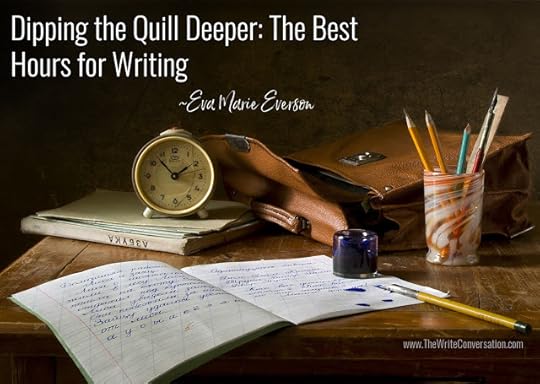
Dipping the Quill Deeper: The Best Hours for Writingby Eva Marie Everson
“When do you do your best writing?” someone asked me.
I don’t mean a particular “someone.” I am asked this question at nearly every gathering of writers, whether by profession or hobby. I was asked this question several times recently at the biannual Christian Product Expo held in Lexington, Kentucky
When do you do your best writing . . .?
And I think this is not the correct question, at least not for me. Because my “best writing” could come first thing in the morning before the rest of the world vies for my time, or it could come in the middle of the night when the rest of the world is sleeping (and therefore cannot vie for my time). It could also happen in the middle of the day shortly after I’ve decided to take a break from the business of writing. I’ve had my afternoon tea, which I enjoyed while reading another chapter in the book I hate to put down and, because I’m neck-deep in a well-written novel, I suddenly find myself inspired to run back to my office and work on whatever project I have going.
However, it always seems that my best writing happens when I’m in the shower . . . or on a long walk . . . or driving up the interstate. You are writers, I presume, so you understand what I’m saying. About the time I am in a position not to be able to write, the words pour into my brain like harvested corn into a silo. I try to repeat them so as not to forget them until I can either write them on the back of an old envelope or ink them onto the palm of my hand or into my journal, or, better still, make it back to my laptop. But often, I lose them. Or most of them.
And I’ve learned that this is okay.
So the answer to the question “when do you do your best writing?” is this: whenever the muse comes and I happen to be in a good place for writing. I cannot say “morning is best” or “evening is best” but I can easily say that “whenever I can get away to just write is best.”
This also means that another question I often hear—Where do you do your best writing?—is closely connected to the first question. And again, those answers vary. There are times when I’m in my home office and the words come nearly faster than my trusty little fingers can type them. Other times when I sit in that same chair, stare at that same screen, and think, “I should probably do a load of clothes . . . wash some dishes . . . polish some silver . . . make a phone call . . . make a bed . . . go back to bed.” Anything and everything not to do what I need to do, which is write. This is why I often “go away” to write. I know why I’m there.
I read something today that spoke to my heart on this very subject. The hour in our life in which we are best employed is the hour in which we best love Jesus (from Meditations of a Hermit by Charles de Foucauld).
I had to ponder how the oft-asked questions and that one line related each to the other, but I instinctively knew they did. If, I concluded, I can say that morning is best—or evening or in the middle of the afternoon is best—or if I can say that the home office is my best location or Ramona’s Birmingham residence, or Jan’s Tampa residence, or that Holiday Inn overlooking the Atlantic is best, but I’m slaving away without first loving Jesus, then I’m not best employed at all. Neither the time nor the place matter and my words, though they may be eloquent or praise-worthy or even prize-worthy are, in fact, worthless.
God gave me—gave us—this incredible talent, specifically the ability to see the world around us in story, in nouns and verbs, in adjectives and adverbs. I once heard a visual artist say that he sees everything in shadow and light. I remarked that we were much alike because I see everything in words. We writers overhear conversations and imagine the plotlines around them. We live life’s struggles and victories and pen the experiences. We cannot help it; God has wired us this way.
The important thing, then, is not the time or the place, but the way we give the gift back to God.
We write, John penned in 1 John, to make our joy complete (1:4). We must.
But the joy first came from loving God. It had to have had and it must always.
TWEETABLEDipping the Quill Deeper; The Best Hours for Writing, insight from author Eva Marie Everson on @EdieMelson (Click to Tweet)
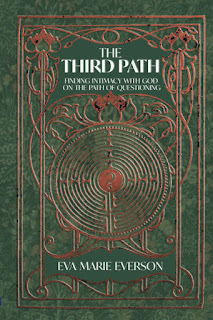 THE THIRD PATH, Finding Intimacy with God on the Path of Questioning
by Eva Marie Everson
THE THIRD PATH, Finding Intimacy with God on the Path of Questioning
by Eva Marie Everson
A prayer labyrinth with four paths.
A path of questioning.
A book full of questions that demand an answer.
AND A LIFE CHANGED FOREVER ...
There are times when knowing God at a deeper level means knowing ourselves better ... and vice versa. But how do we get to the core of who we are? Perhaps by hearing-and answering-the questions God asks.
The Third Path offers 26 of the questions found within God's Holy Word, questions He asked biblical characters He dealt with directly. Questions that demanded answers. These same questions, when answered carefully and thoughtfully, allow us to know ourselves better ... and God better still.
Let's walk.
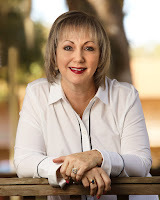 Eva Marie Everson is the CEO of Word Weavers International, the director of Florida Christian Writers Conference, and the contest director for Blue Ridge Mountains Christian Writers Conference. She is the multiple award-winning author of more than 40 books and countless articles and blogposts. She is also an award-winning speaker and a Bible teacher and the most recent recipient of the AWSA Lifetime Achievement Award (2022).
Eva Marie Everson is the CEO of Word Weavers International, the director of Florida Christian Writers Conference, and the contest director for Blue Ridge Mountains Christian Writers Conference. She is the multiple award-winning author of more than 40 books and countless articles and blogposts. She is also an award-winning speaker and a Bible teacher and the most recent recipient of the AWSA Lifetime Achievement Award (2022).
Eva Marie is often seen at writers conferences across the States. She served as a mentor for the Jerry B. Jenkins Christian Writers Guild and taught as a guest professor at Taylor University in 2011. She and her husband make their home in Central Florida where they enjoy their grandchildren. They are owned by one persnickety cat named Vanessa.
Eva Marie's latest book, The Third Path , takes a look at 26 of the questions God asked in the Bible, then makes them personal to the reader. The premise of the book is currently her most asked for continuing workshop at writers conferences.

Dipping the Quill Deeper: The Best Hours for Writingby Eva Marie Everson
“When do you do your best writing?” someone asked me.
I don’t mean a particular “someone.” I am asked this question at nearly every gathering of writers, whether by profession or hobby. I was asked this question several times recently at the biannual Christian Product Expo held in Lexington, Kentucky
When do you do your best writing . . .?
And I think this is not the correct question, at least not for me. Because my “best writing” could come first thing in the morning before the rest of the world vies for my time, or it could come in the middle of the night when the rest of the world is sleeping (and therefore cannot vie for my time). It could also happen in the middle of the day shortly after I’ve decided to take a break from the business of writing. I’ve had my afternoon tea, which I enjoyed while reading another chapter in the book I hate to put down and, because I’m neck-deep in a well-written novel, I suddenly find myself inspired to run back to my office and work on whatever project I have going.
However, it always seems that my best writing happens when I’m in the shower . . . or on a long walk . . . or driving up the interstate. You are writers, I presume, so you understand what I’m saying. About the time I am in a position not to be able to write, the words pour into my brain like harvested corn into a silo. I try to repeat them so as not to forget them until I can either write them on the back of an old envelope or ink them onto the palm of my hand or into my journal, or, better still, make it back to my laptop. But often, I lose them. Or most of them.
And I’ve learned that this is okay.
So the answer to the question “when do you do your best writing?” is this: whenever the muse comes and I happen to be in a good place for writing. I cannot say “morning is best” or “evening is best” but I can easily say that “whenever I can get away to just write is best.”
This also means that another question I often hear—Where do you do your best writing?—is closely connected to the first question. And again, those answers vary. There are times when I’m in my home office and the words come nearly faster than my trusty little fingers can type them. Other times when I sit in that same chair, stare at that same screen, and think, “I should probably do a load of clothes . . . wash some dishes . . . polish some silver . . . make a phone call . . . make a bed . . . go back to bed.” Anything and everything not to do what I need to do, which is write. This is why I often “go away” to write. I know why I’m there.
I read something today that spoke to my heart on this very subject. The hour in our life in which we are best employed is the hour in which we best love Jesus (from Meditations of a Hermit by Charles de Foucauld).
I had to ponder how the oft-asked questions and that one line related each to the other, but I instinctively knew they did. If, I concluded, I can say that morning is best—or evening or in the middle of the afternoon is best—or if I can say that the home office is my best location or Ramona’s Birmingham residence, or Jan’s Tampa residence, or that Holiday Inn overlooking the Atlantic is best, but I’m slaving away without first loving Jesus, then I’m not best employed at all. Neither the time nor the place matter and my words, though they may be eloquent or praise-worthy or even prize-worthy are, in fact, worthless.
God gave me—gave us—this incredible talent, specifically the ability to see the world around us in story, in nouns and verbs, in adjectives and adverbs. I once heard a visual artist say that he sees everything in shadow and light. I remarked that we were much alike because I see everything in words. We writers overhear conversations and imagine the plotlines around them. We live life’s struggles and victories and pen the experiences. We cannot help it; God has wired us this way.
The important thing, then, is not the time or the place, but the way we give the gift back to God.
We write, John penned in 1 John, to make our joy complete (1:4). We must.
But the joy first came from loving God. It had to have had and it must always.
TWEETABLEDipping the Quill Deeper; The Best Hours for Writing, insight from author Eva Marie Everson on @EdieMelson (Click to Tweet)
 THE THIRD PATH, Finding Intimacy with God on the Path of Questioning
by Eva Marie Everson
THE THIRD PATH, Finding Intimacy with God on the Path of Questioning
by Eva Marie EversonA prayer labyrinth with four paths.
A path of questioning.
A book full of questions that demand an answer.
AND A LIFE CHANGED FOREVER ...
There are times when knowing God at a deeper level means knowing ourselves better ... and vice versa. But how do we get to the core of who we are? Perhaps by hearing-and answering-the questions God asks.
The Third Path offers 26 of the questions found within God's Holy Word, questions He asked biblical characters He dealt with directly. Questions that demanded answers. These same questions, when answered carefully and thoughtfully, allow us to know ourselves better ... and God better still.
Let's walk.
 Eva Marie Everson is the CEO of Word Weavers International, the director of Florida Christian Writers Conference, and the contest director for Blue Ridge Mountains Christian Writers Conference. She is the multiple award-winning author of more than 40 books and countless articles and blogposts. She is also an award-winning speaker and a Bible teacher and the most recent recipient of the AWSA Lifetime Achievement Award (2022).
Eva Marie Everson is the CEO of Word Weavers International, the director of Florida Christian Writers Conference, and the contest director for Blue Ridge Mountains Christian Writers Conference. She is the multiple award-winning author of more than 40 books and countless articles and blogposts. She is also an award-winning speaker and a Bible teacher and the most recent recipient of the AWSA Lifetime Achievement Award (2022). Eva Marie is often seen at writers conferences across the States. She served as a mentor for the Jerry B. Jenkins Christian Writers Guild and taught as a guest professor at Taylor University in 2011. She and her husband make their home in Central Florida where they enjoy their grandchildren. They are owned by one persnickety cat named Vanessa.
Eva Marie's latest book, The Third Path , takes a look at 26 of the questions God asked in the Bible, then makes them personal to the reader. The premise of the book is currently her most asked for continuing workshop at writers conferences.
Published on August 22, 2022 22:00
August 21, 2022
Give Your Readers a Deeper Connection with the Characters You Write Through the Q Factor

by Ane Mulligan @AneMulligan
I learned about the Q Factor from James Scott Bel l several years ago at the BRMCWC . He’s given me permission to share it.
So what is the Q Factor for Writers?
It’s a great tool that comes from Dr. Q, in the James Bond movies. He’s the one who gives Bond his gadgets, so during the crucial scene where Bond is dangling by his ankles over a school of piranha, he manages to get his thumb on a cufflink. That cufflink turns into a small, rotating saw, which he uses to cut through the restraints on his hands and legs. He then reaches into his jacket pocket and pulls out a fountain pen. The pen holds a compressed nitrogen charge and shoots a small grappling hook and line across the piranha pond, enabling Bond to swing to safety on the other side of the pool.
Now, if we had been watching the movie and come to this point, and Bond simply produced those items for the first time, we wouldn’t believe it. How very convenient and a load of codswallop. We’d walk out of the theater.
But because Dr. Q set it up, and because we saw these items before, we accept them when they’re used.
The Q factor in fiction
In fiction, the Protagonist should reach a point near the end when everything looks lost. In figurative terms, she is dangling over a pool of piranha. She needs courage for the final battle, to face the ultimate test.
This is where the Q Factor can help. It is something set up early in the story that will provide the necessary inspiration or instruction for the character when she needs it most.
In Chapel Springs Revival, my Q Factor was Claire’s late Great-aunt Lola. The first time her husband went to work without kissing her goodbye, she left, went to Hollywood and became a big star in silent films. Claire remembers that when her hubby leaves for work without kissing her goodbye. This sets up the story question: will Claire leave her husband?
Now we cut to the black moment, when Claire’s hubby walks out of the house in anger, after he learns something she did. At the appropriate time, Claire goes to the attic and reads Aunt Lola’s journals. In them, what she learns helps her make a decision.
Another way to look at it is this: so many stories are about overcoming fear. The fear manifests itself most when all the forces are marshaled against the Protagonist. Fear and common sense tell her to give up, run away. She knows she can't. So give her a Q Factor, an emotional element that comes in when she needs it.
How to Give Your Character a Q Factor
1. Decide what the element will be (item, mentor-sidekick, moral sentiment or emotion, negative character, etc.)
2. Write a scene early in the narrative that ties this element emotionally to the Protagonist.
3. Refer to the Q Factor subtly in the middle section, as a reminder.
4. Find a trigger point in your Protagonist’s black moment where the Q Factor can be reintroduced.
5. Show your Protagonist taking new action based on the Q Factor. If you've embedded the Q well enough up front, the readers will pick up what's happening without you having to explain it to them. Just let it happen naturally.
The Q Factor is just another tool to add to your technique box. I like collecting these and finding new ways to incorporate them.
Share a favorite writing tool from your technique box.
TWEETABLEGive Your Readers a Deeper Connection with the Characters You Write Through the Q Factor, insight from author @AneMulligan on @EdieMelson (Click to Tweet)
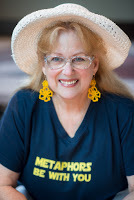 Ane Mulligan lives life from a director’s chair, both in theatre and at her desk, creating novels. Entranced with story by age three, at five she saw PETER PAN onstage and was struck with a fever from which she never recovered—stage fever. One day, her passions collided, and an award-winning, bestselling novelist immerged. She believes chocolate and coffee are two of the four major food groups and lives in Sugar Hill, GA, with her artist husband and a rascally Rottweiler. Find Ane on her website, Amazon Author page, Facebook, Instagram, Pinterest, The Write Conversation, and Blue Ridge Conference Blog.
Ane Mulligan lives life from a director’s chair, both in theatre and at her desk, creating novels. Entranced with story by age three, at five she saw PETER PAN onstage and was struck with a fever from which she never recovered—stage fever. One day, her passions collided, and an award-winning, bestselling novelist immerged. She believes chocolate and coffee are two of the four major food groups and lives in Sugar Hill, GA, with her artist husband and a rascally Rottweiler. Find Ane on her website, Amazon Author page, Facebook, Instagram, Pinterest, The Write Conversation, and Blue Ridge Conference Blog.Featured Image: Photo by Oluwakemi Solaja on Unsplash
Published on August 21, 2022 22:00
August 20, 2022
When Writing Gets Hard, Sometimes We Just Need to Change Our Mindset
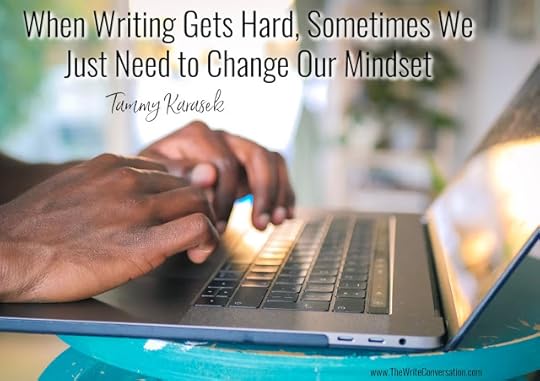
by Tammy Karasek @TickledPinkTam
As writers, we face many issues that trip us up and then we fail to sit and write. Reasons or excuses are as varied as the writer themselves. Here are a couple I’ve heard or might have said (ahem), I have writer’s block, I can’t write my computer is acting up, or why should I sit here and write nobody wants to read it anyway?
But what if we change our writing mindset?
Instead of taking the proverbial woe is me attitude and thus sabotage our work, what if we look at ways to rise above those bumps in the road? Let’s explore a couple ways to do that.
I have writer’s block.Do you really? Or are you being ornery like a toddler throwing a terrible-two tantrum of I don’t wanna? Though I’m grateful I still have my mind to realize I’m not doing what I’m supposed to be doing, I’ve been enlightened that I need to change my mindset of I can’t, to I get to. To take the negative and make it positive. A change of scenery can get those creative juices flowing again. Grab a journal and pen and move to another spot or even go outside. A short walk is rejuvenating and then come back to your porch and madly write down everything that came to your mind while walking. Doing this starts a floodgate of thoughts for me and ideas now race through my once blocked mind. I’m grateful to have options to stretch my writing muscle by taking my brain to a creative space to refuel. When I can’t think of what to write, I’m thankful for ways to refresh my mind so I get to write.
I can’t write, my computer is acting up.This happens for all of us from time to time, no matter the computer brand we have. But remember those old-fashioned paper things we called tablets? I’m not talking about the digital tablets we have now, although those would work, I’m talking about a good ol’ spiral notebook or a journal of choice. I still use both of them daily for other things, so why not use them to write some scenes for my book or a blog post. For me, my favorite tablet or journal to use is a LEUCHTTURM1917 journal and a fountain pen from my collection. A pink journal with a pink pen and pink ink – but of course! This changes our thought of I can’t write without my computer to I get to write and am blessed with other options.
I don’t know all the writing rules.Ah, but you know where to find them. The internet is at your fingertips. Bookstores and booksellers are loaded with choices of craft books on writing. Not sure which book to choose? Reach out to a writer friend or an author you admire and ask for their opinions on great writing instruction books to start with. I’m grateful I get to continue learning how to make my writing stronger and better. I can’t write without the rules, but I get to do the research and learn.
Nobody wants to read what I’ve said.I’ve found for every time I think this negative thought, someone (and usually more than one) will share a comment on a post I’ve written saying they were thankful for what I shared. More often than not, I’m blessed by those commenters when they share what the thoughts brought to mind for them and they teach me something. The bottom line is God is interested in what you—and I—have to say. God has gifted you and I as writers with the talent to use words to help others in one form or another. Let’s use the gift regularly. I can’t possibly know who or how many people might be impacted by the words I’ve shared, but I get to share words given to me by God when and wherever I can.
I’m grateful God has gifted me with the calling of a writer and I hope you are as well. I may not have all the answers to the excuses we try to create into reasons to keep us from writing, but I know that I’ve been given the privilege to share what I do know to inspire, make people think, entertain them or at the very least give them a giggle.
What about you? Have you created a block in your own writing by thinking I can’t do instead of I get to? For all of us today, think of one reason that is keeping you from writing and see if you have used the phrase I can’t. Now, put on your thinking cap, change your mindset and say yes, but I get to_____. You fill in that blank.
Let’s talk about it in the comments, yes? See, here’s a get to in your writing mindset already. You get to share with all of us something you will change in your writing to keep going when you block your own productivity. Then we will get tolearn from you!
TWEETABLEWhen Writing Gets Hard, Sometimes We Just Need to Change Our Mindset, insight from @TickeledPinkTam on @EdieMelson (Click to Tweet)
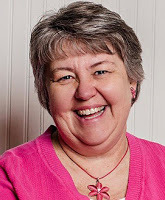 Tammy Karasek uses humor and wit to bring joy and hope to every aspect in life. Her past, filled with bullying and criticism from family, drives her passion to encourage and inspire others and give them The Reason to smile. She’s gone from down and defeated to living a “Tickled Pink” life as she believes there’s always a giggle wanting to come out!
Tammy Karasek uses humor and wit to bring joy and hope to every aspect in life. Her past, filled with bullying and criticism from family, drives her passion to encourage and inspire others and give them The Reason to smile. She’s gone from down and defeated to living a “Tickled Pink” life as she believes there’s always a giggle wanting to come out! She’s the Social Media Manager for the Blue Ridge Mountains Christian Writers Conference, Founding President and current Vice-President of ACFW Upstate SC, Founding President of Word Weavers Upstate SC. She’s a writing team member for The Write Conversation Blog, Novel Academy, and MBT Monday Devotions and others. Her work was published in a Divine Moments Compilation Book—Cool-inary Moments. When not writing Women’s Fiction and Rom-Com, she’s The Launch Team Geek helping authors launch their books and a Virtual Assistant for authors.
Featured Image: Photo by Hello Lightbulb on Unsplash
Published on August 20, 2022 22:00
August 19, 2022
Returning to the Source: Where to Find Peace in the Midst of Writer's Block

by Emme Gannon @GannonEmme
Nothing was working. I’d paced, took a long walk, sat in the garden and daydreamed, even succumbed to a soothing cup of tea. Words still eluded me. Fear leaped into my heart and I wondered if this was it. Had my writing finally dried up and my years of weaving words into stories come to an end? A drab end, to be sure. Never accomplishing all I had dreamed of, hoped for, or imagined.
Was God moving me away from creating words to something else? Like Peter, who was once a fisherman, or Paul a tentmaker. Or, was I like Jonah, who God had called but who at first ran from God’s call. No matter how large or small the mission, when Jesus calls, we follow or run. What was this struggle going on in my soul?
Why these feelings? Asking why unlocks a plethora of emotions, all signposts which can lead to the reason we run from who we are. The coping mechanisms and self-talk begin to dissolve with the light of exposure.
As is true with all we do, we lock up when our internal self casts doubt. Doubt is like a storm that transforms us from a productive person to one beset by internal roadblocks. Our image cracks. Then we run and hide. We cease to believe in ourselves. We think we’ve failed. Then we do the worst possible thing—we compare our writing to others. By doing so we remove our strength, our individuality, our very writing voice.
Overcoming writer’s block is not a simple process as often it is birthed in our contrived image of ourselves and what we seek to accomplish. I stared at a blank screen for too long before my fingers started tapping the keys—words that only came when I remembered that it is God that ordains my image, my calling, my stories. Reconnecting with our unique way of writing frees us to write again.
By allowing the Lord to give His wisdom, strength, and direction, we will begin to break free from the bondage of an emotional block of any kind, thus being free to write what brings us joy, not just what the market is demanding at the time. Our words will then have passion as we dig deep from a heart yielded to God.
There are days when life shuts us down and all we can do is look to heaven, raise our arms like a child, and cry, “Help!” We wait in silence for an answer, not knowing that all the time Jesus has been by our side, attending to us with deep love, and waiting for our surrender. We may never write a famous novel to achieve star status, but our words will be ours, woven by the Master’s design.
TWEETABLEReturning to the Source: Where to Find Peace in the Midst of Writer's Block, insight from @GannonEmme on @EdieMelson (Click to Tweet)
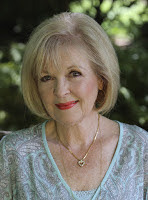 Emme Gannon is a wife, mother, and grandmother who loves to write stories that stir the heart. Her award-winning writing has appeared in Focus on the Family magazine, several anthologies, and numerous newsletters. She just completed her first novel.
Emme Gannon is a wife, mother, and grandmother who loves to write stories that stir the heart. Her award-winning writing has appeared in Focus on the Family magazine, several anthologies, and numerous newsletters. She just completed her first novel.Featured Image: Photo by Steve Johnson on Unsplash
Published on August 19, 2022 22:00
August 18, 2022
How to Incorporate Our Personal Stories in Our Writing

by Crystal Bowman
When I meet with people at writer’s conferences, I find that many attend because they have a personal story to tell and are not sure how to go about getting it published. Their story is important to them, and they want to share it with others. Some hope their story will encourage others who can relate to their experience. Some want to share their story to show how God did something amazing in their life, while others believe their story will put a smile on someone’s face.
One woman told me, “I am a breast cancer survivor, and my friends tell me I need to write a book.” Another young woman shared how she had been sexually abused as a child and wants to bring awareness to the all-too-common disturbing crime. A young father shared his struggles raising a son with special needs, and a mom with eleven children said stories about her kids would fill the pages of a book.
Many of the writers I meet are trying to publish something for the first time and believe their story needs to be a book. Their motives are honest and sincere. However, most personal stories don’t open the door to a five-figure contract from a traditional publishing house.
But here’s the good news: There is a place for personal stories besides a book with your name on the cover.
Options for Using Personal Stories
My son and daughter-in-law went through a dark and lonely journey with infertility. When they finally had their first child, my daughter-in-law wanted to write a book to help other couples facing infertility. I made her realize that her story alone was not enough for a book. Infertility encompasses a wide variety of issues, and her story was only one of many. I got the idea to create a compilation of stories so we could reach a much broader audience. We collected stories from 30 different women, each with their own unique experience. Mothers In Waiting—Hope and Encouragement for Those with Empty Arms was published by Harvest House in 2019. My daughter-in-law, as well as 29 other women, were able to share their personal stories to offer hope to others.
For those who don’t want to create their own compilation book, books like Chicken Soup for the Soul and magazines like Guidepost are just a couple of publications that welcome personal stories. The Chicken Soup for the Soul series covers every topic on earth (and heaven), and Guidepost Magazine is known for personal, heartwarming stories and faith-affirming, inspirational articles.
A Great Resource
If you are not sure how to find a good fit for your personal story, a great resource is The Christian Writers Market Guide by Steve Laube. It’s packed with information on publishing options and will help you find a place for your personal story. It may not become a New York Times bestseller, but God uses our stories to reach the right people, in the right place, at the right time. Trust Him to help you share the story He put on your heart.
TWEETABLEHow to Incorporate Our Personal Stories in Our Writing, tips from author Crystal Bowman on @EdieMelson (Click to Tweet)
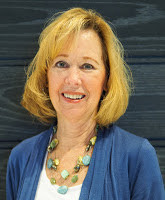 Crystal Bowman is an award-winning, bestselling author of more than 100 books for children and four nonfiction books for women. She also writes lyrics for children’s piano music and is a monthly contributor to Clubhouse Jr. Magazine. She loves going to schools to teach kids about poetry. She also speaks at MOPS (Mothers of Preschoolers) groups and teaches workshops at writers’ conferences. When she is not writing or speaking, she enjoys going for walks, working out at the gym, and eating ice cream. She and her husband live in Michigan and have seven huggable grandkids.
Crystal Bowman is an award-winning, bestselling author of more than 100 books for children and four nonfiction books for women. She also writes lyrics for children’s piano music and is a monthly contributor to Clubhouse Jr. Magazine. She loves going to schools to teach kids about poetry. She also speaks at MOPS (Mothers of Preschoolers) groups and teaches workshops at writers’ conferences. When she is not writing or speaking, she enjoys going for walks, working out at the gym, and eating ice cream. She and her husband live in Michigan and have seven huggable grandkids. WWW.CRYSTALBOWMAN.COMWWW.FACEBOOK.COM/CRYSTAL.BOWMANWWW.FACEBOOK.COM/CRYSTALJBOWMANWWW.INSTAGRAM.COM/CRYSTALBOWMANAUTHOR
Published on August 18, 2022 22:00
August 17, 2022
How to Create Amazon Ads to Become an Amazon Bestseller

by Susan U. Neal RN, MBA, MHS @SusanNealYoga
Would you like to attain higher book sales? You can by creating sponsored Amazon ads, so your book shows up in the top of the feed when a buyer is searching for a topic similar to what is included in your book. It can feel daunting to learn the Amazon ad system and create your first ad. This article will teach you how to set up sponsored Amazon ads for both traditionally published and self-published authors.
What better way to snag a sale than when the reader is already searching to purchase an item similar to yours? They simply need to find your book. I have had exceptional success with Amazon ads. I created my first ad in 2017, but it took six months of monitoring the ads and figuring out the system to make a profit. But since then, for every hundred dollars I’ve spent on ads, I’ve made almost $200 in profit.
Set up Sponsored Amazon Ads
Sponsored ads are fairly easy to create, and authors have had higher success rates, so that is the type of ad covered in this article. First, you can create ads on two different platforms. If you are self-published, you can create ads through Kindle Direct Publishing (KDP.com). If you are traditionally published, you can set up ads through your author central account at authorcentral.amazon.com. If you don’t have an account, you can establish one for free at Amazon Author Central .
As of March 2022, any author with a verified Amazon Author Central account can place Amazon ads for any book, including traditionally published books. For now, this is only for the US marketplace. This is how Amazon has finally allowed traditionally published authors to create Amazon ads. If you would like further information, please read Amazon Opens Advertising to Traditionally Published Authors .
To set up ads in KDP.com login to your account and find your book that you want to create an ad for and click Promote and Advertise. Next, click Run Ad and Choose a Marketplace; then click Create an Ad Campaign. The first time you set up an ad, Amazon will ask you for some account information including how you will pay for the ads.
To set up an ad on your Amazon Author Central account, login and click on the Reports + Marketing tab and look on the lower-right side under Amazon Advertising for the button, Goes to the Ads Console. The next page will open in your Amazon ads console. Click the second icon on the top left and Sponsored ads will appear. Click Campaign Creation. Then follow these steps:
Steps to Create an Amazon Ad for Your BookNext, click Sponsored Products. You will enter the area to set up your ad. Choose your Ad Format. Select Standard ad.Ad Groups: Give your ad a group name.Products: Choose the book you want to promote.Targeting (2 options): Automatic Targeting where Amazon targets keywords and other products similar to your book. Or Manual Targeting where you choose keywords or similar books. (I chose automatic targeting because I already determined my book’s keywords and incorporated those into the book’s title and description when I uploaded my book to KDP.com.)Automatic Targeting (2 options): Either set default bid or set bids by targeting groups to match your ads to shoppers looking for your product. Choose Set default bid for 25 to 35 cents. Negative Keyword targeting and Negative Product targeting are optional. For example, you could choose the negative keyword, “free,” so your book would not be listed when anyone searches for a free item on Amazon. I don’t use this option.Campaign bidding strategy (3 options): Dynamic bids down only (Amazon can move your bid price down but not up), Dynamic bids up and down (Amazon can move your bid price up and down), or Fixed bids. Choose Dynamic bids down only until you get comfortable with monitoring your ads. Settings: Includes campaign name, start and end date. Choose no end date. Add a daily budget of $5 to start with until you are sure the ad is profitable. Click Launch Campaign. Amazon will email you and let you know you submitted a campaign ad, and it is under review. In one to three days, Amazon will notify you if your campaign was approved and that it is live. Select Keywords
You can choose to determine and select keywords or allow Amazon to do this for you. I chose the latter and have been successful. However, I’ve put a lot of work in to determining the best keywords to include in my books’ title and description, and I uploaded those keywords to the KDP.com publishing platform.
If you need to determine your book’s keywords, take my course, Increase Your Book’s Amazon Rank by Expanding Categories and Keywords at CIPA.Podia.com . This course is free to members of Christian Indie Publishing Association (CIPA).
For your Amazon ads, choose about 300 keywords. The best system I found to do this is Publisher Rocket . You can receive a 30 percent discount on this software by joining CIPA at christianpublishers.net. This savings will cover one third of your association membership cost.
Monitor Amazon Ads
You can spend a lot of money on Amazon ads. If you are new to placing ads, I suggest checking your ads a couple of times a week. Since I’ve been doing this since 2017, I monitor my ads monthly. To access your Amazon ads dashboard go to Advertising.Amazon.com/cm/campaigns and login.
The top of the page shows all of your ads’ general metrics and graphics combined, which gives you a snapshot of how the ads are performing. Underneath are your individual campaigns. From left to right, you will find the following column terms: Status: Tells you if your ad is running or paused. If you want to pause a campaign, click the toggle switch in this column. You can turn an ad back on here too. Campaign: Your ad is called a campaign. And sometimes you create a group of ads under one advertising campaign. Ad groups organize your products’ ads.Budget: How much you’re willing to spend per day on this campaign. I start with $5, but when an ad becomes profitable, I increase it to $100. Spend: The total charges derived from all the people who clicked on your ad/campaign during the date range that is in the top right of this section.Orders: The number of Amazon orders that shoppers submitted within 14 days after clicking on your ad.Sales: Sales is the total value of products sold to shoppers within 14 days that resulted from them clicking on your ads.Advertising Cost of Sales (ACOS): The percentage of your sales that you spend on advertising. This is calculated by dividing how much you spent on an ad divided by the sales attributed to the ads. The lower the percentage, the more profitable the campaign. For an ad to be profitable, your ACOS should be <70% if your eBook sells for $2.99–$9.99. If your eBook price is <$2.99 or >$9.99 your ACOS need to be < 35%. My ads ACOS range from 12% to 44%. Kindle Edition Normalized Pages Read (KENP): The estimated number of pages read by Kindle Unlimited customers attributed to your ads. Copy: If you want to duplicate an ad, click copy.
As you monitor your ads, you may need to adjust your bid. If you have had no impressions, clicks, or sales then you need to increase your bid. If you have had impressions and sales, but are losing money, you need to lower your bid.
If increasing your bid does not cause your ad to work, then look at the copywriting of your book’s description. Have you added your keywords into the book’s Amazon description? You or your publisher can do this through the KDP.com publishing platform. Do you need a more dynamic book cover? These things must be taken into consideration when assessing the profitability of your ad.
The first six months I ran Amazon ads I lost money, but thereafter, I made money. Amazon wants its cut of your profits. If your book sells well and you are willing to split the profit, Amazon will display your book to more potential buyers, which results in more sales. If you are not willing to split the profit, don’t run Amazon ads, but you will have few overall book sales. If you want to learn more about Amazon ads, I recommend the free course by Dave Chesson with Kindlepreneur at https://courses.kindlepreneur.com/courses/AMS .
TWEETABLEHow to Create Amazon Ads to Become an Amazon Bestseller, tips from @SusanNealYoga on @EdieMelson (Click to Tweet)
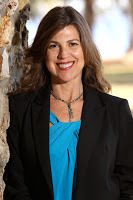 Susan U. Neal, RN, MBA, MHS: Susan’s mission is to improve the health of the body of Christ. She has her RN and MBA degrees, as well as a master’s in health science. She is a CERTIFIED HEALTH AND WELLNESS COACHwith the American Association of Christian Counselors. She published five books, the Selah award winner 7 STEPS TO GET OFF SUGAR AND CARBOHYDRATES, CHRISTIAN STUDY GUIDE FOR 7 STEPS TO GET OFF SUGAR AND CARBOHYDRATES, HEALTHY LIVING JOURNAL, SCRIPTURE YOGAa #1 Amazon best-selling yoga book, and YOGA FOR BEGINNERSwhich ranked #3. She published two sets of Christian Yoga Card Decks and two Christian Yoga DVDs that are available at CHRISTINAYOGA.COM. Her digital product HOW TO PREVENT, IMPROVE, AND REVERSE ALZHEIMER’S AND DEMENTIAis a great resource. To learn more about Susan visit her website SUSANUNEAL.COM You can also connect with Susan on FACEBOOK, TWITTER, and INSTAGRAM.
Susan U. Neal, RN, MBA, MHS: Susan’s mission is to improve the health of the body of Christ. She has her RN and MBA degrees, as well as a master’s in health science. She is a CERTIFIED HEALTH AND WELLNESS COACHwith the American Association of Christian Counselors. She published five books, the Selah award winner 7 STEPS TO GET OFF SUGAR AND CARBOHYDRATES, CHRISTIAN STUDY GUIDE FOR 7 STEPS TO GET OFF SUGAR AND CARBOHYDRATES, HEALTHY LIVING JOURNAL, SCRIPTURE YOGAa #1 Amazon best-selling yoga book, and YOGA FOR BEGINNERSwhich ranked #3. She published two sets of Christian Yoga Card Decks and two Christian Yoga DVDs that are available at CHRISTINAYOGA.COM. Her digital product HOW TO PREVENT, IMPROVE, AND REVERSE ALZHEIMER’S AND DEMENTIAis a great resource. To learn more about Susan visit her website SUSANUNEAL.COM You can also connect with Susan on FACEBOOK, TWITTER, and INSTAGRAM.
Published on August 17, 2022 22:00
August 16, 2022
Five Reasons Deleting Words Can Bring a Writer Peace Instead of Anxiety

by Katy Kauffman @KatyKauffman28
It can be hard to let go of my words. I get attached. Do you?
One of the hardest things about editing our writing is deleting sentences, paragraphs, and even whole pages. It’s not easy to string words and ideas together, so why go through the anxiety of having to delete some?
Turn anxiety into peace by remembering that streamlined writing makes for streamlined reading. We don’t want to clutter our message. Instead, we can see whether every word is vital to a sentence, whether every sentence is needed in a paragraph, and whether every paragraph helps a chapter or article to be the best it can be. So maybe I can help smooth the inner turmoil a bit.
Reasons Why Deleting is Necessary to Make our Writing Better
1. Unnecessary words distract from your main point.
Don’t let unneeded words distract the reader from the heart of your message. You may like a certain rabbit trail or want to include an extra illustration, but consider whether it will help your point or hinder it. See whether every word is serving a useful purpose. If you can delete a word or sentence and find that you’re not missing something important, it needs to go! Tight writing makes for excellent reading.
2. Too many words in a sentence can hurt the musicality of your writing.
Although it’s good to mix long and short sentences, too many long sentences can sound monotonous in the mind of the reader. You don’t want your sentences to sound burdened and weighed down. Remember that the words you write become a song for your reader to hear, so select words that add lyricism to your writing and delete words that muffle the melody.
3. Your book may need to start on a different page or in a different chapter.
When you’re writing a book, that sounds like “sacrilege,” right? I found that Introductions are the hardest to write. Stay open to the possibility that the best place to start your book may not be on page 1. Since the beginning of a book needs to be as snappy and attention-getting as possible, I’ve found it may be necessary to delete some paragraphs or pages to jump into the book’s message. Receiving feedback from a writers’ group or an impartial friend will help you to know whether your book starts in the right spot.
4. Your writing is more about what the reader needs to hear rather than what you need to say.
Writing is definitely therapy for the soul, but a book shouldn’t be our personal venting platform. God can work through our joys and troubles and speak to others. We just need to know how much to divulge. We can take the lessons we’ve learned and share them with our readers, and perhaps they will reach their own “aha” moment when the truth of God clicks in their minds and hearts. Remembering our purpose in writing—to encourage, strengthen, or instruct—will help us to know what to include and what to leave out.
5. The reader will never know what was deleted.
Did that one make you smile? We may agonize over what needs to be left out, but the reader will never know about our agony. Hopefully, what they read will be a heartfelt, prayed-over, edited and re-edited version of what we want to share with them. The published work will have so much love, insight, and wisdom poured into it, that the reader will be blessed. Much more than if they had read our first draft. Our writing improves with editing, prayer, and even deletion.
So take heart, writer friend! The words you write are precious, and the words you leave in your books and articles are even more so. They will speak to the reader, play a song in their head, and touch their heart.
When you delete something from your writing, do you find it a burden or a relief? What types of things do you tend to delete more than others? Share your thoughts below, and don’t forget to join the conversation!
TWEETABLEFive Reasons Deleting Words Can Bring a Writer Peace Instead of Anxiety, insight from @KatyKauffman28 on @EdieMelson (Click to Tweet)
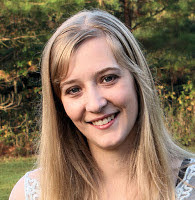 Katy Kauffman is an award-winning author, an editor of Refresh Bible Study Magazine, and a co-founder of LIGHTHOUSE BIBLE STUDIES. She loves connecting with writers and working alongside them in compilations, such as Feed Your Soul with the Word of God, Collection 1 which is a 2020 Selah Awards finalist.
Katy Kauffman is an award-winning author, an editor of Refresh Bible Study Magazine, and a co-founder of LIGHTHOUSE BIBLE STUDIES. She loves connecting with writers and working alongside them in compilations, such as Feed Your Soul with the Word of God, Collection 1 which is a 2020 Selah Awards finalist.In addition to online magazines, Katy’s writing can be found at CBN.COM, thoughts-about-God.com, and three blogs on writing. She loves to spend time with family and friends, talk about art and crafts in her group MY ARTSY TRIBE, and tend the garden in the morning sun. She makes her home in a cozy suburb of Atlanta, Georgia. Connect with on FACEBOOK and TWITTER.
Published on August 16, 2022 22:00
August 15, 2022
Tips for Writers to Begin a New Project Successfully

by Lucinda Secrest McDowell @LucindaSMcDowel
How exciting! You have just received an assignment to contribute a devotion to a compilation book. Or perhaps it’s time to set up a new blog series. Maybe a local church has invited you to speak at their Fall Women’s Kickoff event.
What happens next? Where do you begin to prepare and how do you follow through?
General Ways to Approach a New Writing or Speaking Project
1. IDEA
Every new project begins with an idea; either from yourself or as an assignment from someone else. What is your idea for this project? Maybe God has been reminding you that the encroaching fall is a good time to start fresh on some goals, so you want to prepare a presentation that encourages young mamas how to navigate the next season. Or at that recent writers’ conference you agreed to write a devotional on how to overcome an obstacle in life, only now it is due in one month. Maybe you took a break from blogging in August and you must get those 500 words down in order to post next week. Whatever your idea or assignment, take it to the Lord in prayer and ask Him to guide your steps along the way.
2. TAKEAWAY
Before you write a word, ask yourself this question “When my audience/readers finish, what do I most want them to feel, to decide, to do as a result of my words?” That is called the takeaway or goal of your work. And if you determine the goal even before you write it, you can intentionally include what it takes to get your audience/readers from one place to another. Often our projects include several elements to accomplish a desired takeaway. We might want to inspire, challenge, teach, and even entertain them along the way. God can use many tools to accomplish His purposes. Once you have decided what’s most important, then you must come up with material to offer the catalyst for change. Say, because I want those young mamas just now sending their kids back to school in the Fall, to be able to find better balance in their lives, I might actually include some interactive questions, some fill-in-the-blank charts, plus lots of fun personal stories as I speak to them at their Fall kickoff. Remember, everything we write/speak must be value added to the listener/reader.
3. BREAK IT DOWN
Remember how your high school English teacher taught you do compose outlines? If you’re like me, you wondered if you would ever use that skill in life. Guess what? I use it almost every day – certainly in every writing project. When you look at your whole project, from that hook of a beginning to that satisfying closure, an outline helps you to break it down into parts. Bite sized chunks that can be accomplished step by step. You might want to use a very simple generic outline such as 1. Opening 2. Theme (tell them what you are going to say or address) 3. Statistic on why this is a felt need. 3. Biblical teaching on addressing this need 4. Personal anecdote that ties in God’s Word with your ordinary life 5. Wrap up (tell them what you said) 6. Closing and Challenge. Underneath each section, break it down to actual words, concepts, stories, quotes, questions, etc. Believe me, this works. “Inch by inch, it’s a cinch!”
4. BIRD BY BIRD
Back when author Anne Lamott was a girl, her older brother had put off writing a school report on birds until the night before it was due. He was panicked until his father came to him and suggested “Bird by bird, buddy. Just take it bird by bird.” Anne uses this story in her writing book “Bird by Bird” to say that “Almost all good writing begins with terrible first efforts. You need to start somewhere.” Friend, just start! Bit by bit (bird by bird) begin to tell your story in your voice. Remember your takeaway, consult your outline, and then write, write, write the first draft. It may be terrible, but at least it’s now all down on paper or computer file. You can cut and paste later. Add and takeaway birds to use in another “nest” later.
5. READ and REWRITE
Now you read it aloud. How did that sound to your ear? What words kept being repeated or made no sense at all? I find reading my work aloud helps me recognize the gaps and the overlaps. I also try to “hear” myself from another’s point of view. Am I coming across as too preachy, too whiney, too know-it-all? I know you’ve heard it before, but most of writing is rewriting. So, you must be willing to rewrite and rearrange. Trust me, your efforts (even though editing and especially self-editing can be painful) will make your work into a better, more useful piece. And that is what we aim for—serving the audience, feeding the reader, touching a hurting world in Jesus’ name.
What happens when you have completed your project is that you consecrate all those words and all the potential outlets for sharing those words, to the Lord. Pray over them and ask God to use the words, His Scripture that was quoted, and yourself as a holy messenger of truth. Then go forth boldly through the open doors. I will be praying for you.
TWEETABLETips for Writers to Begin a New Project Successfully, insight from author & speaker, @LucindaSMcDowell on @EdieMelson (Click to Tweet)
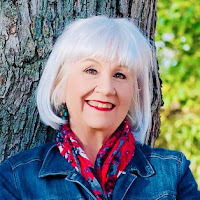 Lucinda Secrest McDowell, M.T.S., is a storyteller and seasoned mentor who engages both heart and mind while “Helping You Choose a Life of Serenity & Strength.” A graduate of Gordon-Conwell Theological Seminary and Furman University, McDowell is the author of 17 books and contributing author to 36+ books. Her award-winning books include Soul Strong, Life-Giving Choices, Dwelling Places, and The Courage to Write. Lucinda, a member of the Redbud Writers Guild and AWSA, received Mt. Hermon “Writer of the Year” award and guest blogs monthly for ‘The Write Conversation.’
Lucinda Secrest McDowell, M.T.S., is a storyteller and seasoned mentor who engages both heart and mind while “Helping You Choose a Life of Serenity & Strength.” A graduate of Gordon-Conwell Theological Seminary and Furman University, McDowell is the author of 17 books and contributing author to 36+ books. Her award-winning books include Soul Strong, Life-Giving Choices, Dwelling Places, and The Courage to Write. Lucinda, a member of the Redbud Writers Guild and AWSA, received Mt. Hermon “Writer of the Year” award and guest blogs monthly for ‘The Write Conversation.’ Whether pouring into young mamas, leading a restorative day of prayer, or coaching writers and speakers through “Encouraging Words Consulting,” she is energized by investing in people of all ages. As a communications teacher, she co-directs “reNEW – spiritual retreat for writers & speakers” and has served on the faculty of Speak Up Conference, Mount Hermon Christian Writers Conference, Blue Ridge Mountains Christian Writers Conference, Florida Christian Writers Conference, Asheville Christian Writers Conference, and She Writes for Him. Known for her ability to convey deep truth in practical and winsome ways, McDowell shares words from “Sunnyside” cottage in New England and blogs weekly at WWW.LUCINDASECRESTMCDOWELL.COM
Featured Image: Photo by Amel Majanovic on Unsplash
Published on August 15, 2022 22:00
August 14, 2022
How Writers Can Market to the Homeschooling Audience Most Effectively

by Karen Whiting @KarenHWhiting
I’ve had opportunities to speak and set up tables to sell books at homeschool markets a few times. This year I doubled my sales into hundreds of dollars. They are a unique and yet diverse audience, and it helps to understand their needs.
I homeschooled my youngest child for a while and have helped my daughters as they have homeschooled. It makes a difference if you have been involved with homeschoolers. You’ll discover they invest lots of money in books, but they look for the right books for their families, from authors who share their goals.
Tips For Marketing to Homeschoolers
Highlight ValueA top priority in choosing what to purchase is the value offered. Usually, the mom stays home to school and may have an at-home job, but the main income is often from only one parent. Make sure parents see the value in your books. That includes:Books with a wide age-rangeDurable books that are timeless to reuse with younger childrenAdds to the home library in a unique but complimentary wayCan bridge more than one year of schoolingFits a need
My books include art that covers several years, family devotions that are hands-on and can be done with a range of ages, and a woman’s US history faith-based book that offers new insights while complimenting the core course history books. Other friends create lapbooks and supplementary products to add the academic elements to literature books they write. This makes it easier to add those fiction books to their curriculum.
Engage the Audience
Ask the ages, not grades, of children and then share what you have for the ages mentioned. Many families spread out the learning differently from regular schools and their children may be on much higher reading levels, so share what in your books can add to their studies and make sure the vocabulary is rich.
Ask what interested their children and what they need in relation to what you offer. I ask if they want more art, women’s history, or faith curriculum. Then I respond to their comments and answers. If they want faith-based curriculum I share how the weekly prayer devotions offer an easy way to use as a curriculum with hands-on explorations and scripture prompts around questions children ask about prayer with no pat answers. The book includes a new way to pray together each week. That provides value and plenty of ideas to make it a faith curriculum.
Offer a free bookmark or activity kit that helps children can a glimpse of one of your books. I print out a devotion from one of my devotional books for boys and add a balloon that’s needed for the related activity to the devotion. They love the freebies and getting to know your writing before they buy. The bookmark helps them order your book later. Make sure the bookmark also offers value with listing benefits or the book of tips for the book’s audience.
Tips to Increase Sales
As authors, we want to move our books and get them in the hands of readers. That means making it easy for readers to understand what you offer at a glance. It also means building a community within the convention with being friendly and being able to refer families to other booths who carry what they need, and you don’t.
Make the Most of Opportunities
Being around homeschool families and other vendors provides lots of opportunities. I’ve made friends and found opportunities for other speaking as well as placing books with some vendors.
I’ve listened to comments people make about my books and consider those as I write new ones. I expect to do and new book on nature for kids and heard a few moms state that it did not contain enough facts and the vocabulary was lower than they want. I’m sure the new book will reflect changes I make as I write.
Display TipsLet the backdrop and signage reflect the benefits of the books. If there’s room and electricity consider using a digital frame or device to loop a presentation about your books.If you have some damaged books, place them in a container with reduced prices. That helps people with tight budgets get your books.Add little cards that can pop pout of books in the display or place them in front of titles. Use these to share information or ways to use your book such as “Great for faith curriculum” in front of a devotional that contains more than a simple daily devotion, or “A picture book that teaches math” in front of one that combines a story with math.Place free bookmarks in front for kids and parents to pick up. Pass out freebies such as printed puzzles, science experiments or craft projects in a baggie.
Highlight Your Homeschool Connections
Families want to know you understand them. If you can mention your homeschool experience or how you help your grands homeschool that helps them know you understand their lifestyle. Chat with vendors who go to several shows to find out what works well and what shows you might try in the future. You might also want to add more on your website about your connections and some photos at homeschool shows.
Evaluate your books and check with a friend who homeschools if you don’t, to decide if a homeschool show if a good fit for your books.
TWEETABLEHow Writers Can Market to the Homeschooling Audience Most Effectively, tips from author @KarenHWhiting on @EdieMelson (Click to Tweet)
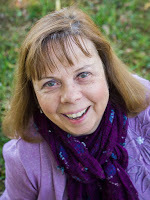 Karen Whiting (WWW.KARENWHITING.COM) is an international speaker, former television host of Puppets on Parade, certified writing and marketing coach, and award-winning author of twenty-seven books for women, children, and families. Her newest book, The Gift of Bread: Recipes for the Heart and the Table reflects her passion for bread and growing up helping at her grandparent’s restaurant. Check out her newest book Growing a Mother’s Heart: Devotions of Faith, Hope, and Love from Mothers Past, Present, and Future. It's full of heartwarming and teary-eyed stories of moms.
Karen Whiting (WWW.KARENWHITING.COM) is an international speaker, former television host of Puppets on Parade, certified writing and marketing coach, and award-winning author of twenty-seven books for women, children, and families. Her newest book, The Gift of Bread: Recipes for the Heart and the Table reflects her passion for bread and growing up helping at her grandparent’s restaurant. Check out her newest book Growing a Mother’s Heart: Devotions of Faith, Hope, and Love from Mothers Past, Present, and Future. It's full of heartwarming and teary-eyed stories of moms.Karen has a heart to grow tomorrow’s wholesome families today. She has written more than eight hundred articles for more than sixty publications and loves to let creativity splash over the pages of what she writes. She writes for Crosswalk. Connect with Karen on Twitter @KarenHWhiting Pinterest KarenWhiting FB KarenHWhiting.
Featured Image: Photo by David Nicolai on Unsplash
Published on August 14, 2022 22:00
Think Outside the Book

by Martin Wiles @LinesFromGod
“I want to write a book.”
For ten years, I have taught grammar and writing to middle schoolers, and quite a few have shared their aspirations to pen a book. Although I commend them and assure them doing so is a worthy goal, I also tell them about the roadblocks, struggles, and rejections they can expect along their journey.
And through my connections with other writers, I’ve heard quite a few of them express the same sentiments as some of my students. So, without discouraging them, I’ve told them the same thing I tell my aspiring young pupils. Some give up the book route while others pursue it through various means: traditional publishing, self-publishing, or subsidy publishing. In our high-tech world, the publishing avenues swing wide open.
But wait. Why must we writers have a book published to be considered successful at our craft? Does doing so put us on a higher echelon than writers who haven’t published a book? Or had it published through a particular avenue? I’ve done the book publishing thing seven times—and through various routes—but I’ve enjoyed more success when I thought outside the book.
According to Scribe media, research shows the average self-published or digital-only book sells about 250 copies in its lifetime. Comparatively, the average traditionally published book sells only 3,000 copies during its lifetime—but only 250-300 of those sales happen in the first year (https://scribemedia.com/book-sales).
If I’ve done my math correctly (and I’m no math major), the average number of people whose lives I have influenced with my books comes to about 1,750. Not bad, but nothing to brag about. After all, if God changes one person’s life by using my writing, then that’s enough. But why settle for less when I could easily influence more through other paths?
Usually, each year, when I attend the Asheville Christian Writers Conference , I pick up a copy of The Christian Writers Market Guide. While this resource lists agents and book publishers who don’t require agents, the bulk of the book presents other publication routes—such as periodicals, devotions, drama, greeting cards, and Bible curriculum. And I would add local newspapers.
I’ve been privileged to write devotional pieces for three newspapers for several years. The combined circulation for these papers is 26,979 . . . in one day. Seems to me that I can potentially reach more people once a month—even if only a portion of them read my articles—than I would ever reach in a lifetime through all my books combined. And that doesn’t include the other websites and periodicals I regularly write for.
If God is calling you to write a book, then, by all means, pursue publication. But don’t limit yourself. Websites, periodicals, newspapers, church newsletters, greeting cards, and many other places need good writers. And if you’re looking to let God speak to others through you, those places might bring a higher return on God’s kingdom work.
Don’t be ashamed to think outside the book. You are no less of a writer if you never write a book.
TWEETABLEThink Outside the Book, insight from author Martin Wiles, @LinesFromGod on @EdieMelson (Click to Tweet)
 Martin Wiles is the founder of Love Lines from God (www.lovelinesfromgod.com) and serves as Managing Editor for Christian Devotions, Senior Editor for Inspire a Fire, and Proof Editor for Courier Publishing. He has authored six books and has been published in numerous publications. His most recent book, DON'T JUST LIVE...REALLY LIVE, debuted in October of 2021. He is a freelance editor, English teacher, author, and pastor.
Martin Wiles is the founder of Love Lines from God (www.lovelinesfromgod.com) and serves as Managing Editor for Christian Devotions, Senior Editor for Inspire a Fire, and Proof Editor for Courier Publishing. He has authored six books and has been published in numerous publications. His most recent book, DON'T JUST LIVE...REALLY LIVE, debuted in October of 2021. He is a freelance editor, English teacher, author, and pastor.
Published on August 14, 2022 05:22



